History
As stated on the official NCTE website, the National Council of Teachers of English was founded in 1911 by a group of educators in Chicago, Illinois, known as the English Round Table of the National Education Association. This group wanted to create a professional response to changing needs and values regarding education, particularly English language education. The impetus for this early effort was a concern that school curricula were becoming too narrow and were incapable of addressing the needs of an increasingly diverse student population. A special committee was formed to address these issues. Since this time the NCTE has provided a forum for English teaching professionals to continue their professional growth throughout their careers, in addition to providing a framework for cooperative action pertaining to issues that affect the instruction of English.
These concerned educators at first set themselves a limited task: to explore the problems arising from a rigid, narrowly defined approach to English language instruction. Soon, however, it became apparent that more was needed, and that only a national professional organization would have the ability to affect policy decisions.
By 1919, the original investigatory committee had grown large enough to become such an organization. Because of its open-door policy regarding membership, the NCTE from the first maintained a divisional structure, with separate groups representing elementary, secondary, and postsecondary educators.
By 1948, the simple divisions based on grade level were inadequate, and the Conference on College Composition and Communication (CCCC) was formed to address the special needs of communication and composition teachers at the university and community college level. This reliance on committee organization proved to be extremely useful, for it permitted interested groups to concentrate their focus on particular issues or trends. Membership grew dramatically in the second half of the twentieth century, and over the years new committees were formed, leading to the five-conference structure in place at the beginning of the twenty-first century.
In 1954, the organization's president was Lou L. LaBrant, who lived to be 103 and taught for 70 years. [2] [3]
Structure
NCTE offers its members opportunities to grow professionally by interacting with colleagues in all sides of English teaching. Individuals belong to any of four broad sections of membership – Elementary, [4] Middle, [5] Secondary [6] or College. [7] They may also join other groups centered on various teaching specialties within English, each with its own journal, meetings, and projects.
Major interest groups, called Conferences, serve teachers of college writing and rhetoric; teacher educators in higher education and in-service posts; teachers with an interest in whole language; and English department chairs, K-12 supervisors, and other English instruction leaders. Assemblies are informal special interest groups, ranging in focus from computers in English to research, which meet at NCTE conventions. A notable example of this last sort of group is the Children's Literature Assembly, which publishes the Journal of Children's Literature.
Commissions monitor and report on trends and issues in the teaching of language, composition, literature, reading, and media. Nearly 50 committees and task forces carry out projects on issues and topics in the teaching of English, among them testing and evaluation, censorship, instructional technology, response to literature, teacher preparation and certification, and English in urban schools.
In addition to commissions, standing committees are charged with focusing on issues and/or areas of continued concern that affect the English language area of study. There are three standing committees; the committee against censorship, the committee on diversity and inclusivity, and the committee on global citizenship. [8]
Committee Against Censorship
The committee against censorship's charge is "to solicit and receive reports of censorship incidents from NCTE members, constituent groups, and sources outside the Council; to serve as a resource on current patterns of censorship; to continue to raise awareness of censorship issues; to serve as an advisory committee to NCTE Headquarters considering the kinds of support and services that an Intellectual Freedom/Anti-Censorship Center could provide; to promote policies for literature adoption that allay the possibility of censorship; to help NCTE develop rationales for the teaching of controversial texts, and to develop a white paper that further explores students' right to write and all of its implications. [9]
Committee on Diversity and Inclusivity
The committee on diversity and inclusivity's charge is to "advise NCTE on efforts to foster diversity and inclusivity among members and potential members, including (but not restricted to) in terms of race, ethnicity, sex and gender identity, age, economic status, physical ability, and teaching circumstances. Work in concert with the Executive Committee and Executive Director on specific assignments that ensure equity and diversity within membership. Identify strategies to employ the resources and values of diversity and inclusivity to advance NCTE's mission for all members, our students, and our constituencies. Provide annual or biannual analyses of the effectiveness of NCTE diversity and inclusivity initiatives (programs, awards, events, etc.), and to make recommendations based on that analysis. Identify existing research or resources that can support a diverse NCTE membership and their professional needs. Identify gaps or opportunities that might be met with new research or resources." [10]
Committee on Global Citizenship
The committee on global citizenship's charge is "to promote interest and knowledge of global connections and issues across the Council, including convention sessions, publications, social media, and Council projects; To promote discussions of the learning needs of students in schools and colleges who come from global contexts and of instructional strategies for teachers of these students; To encourage discussions of the teaching of English and world Englishes in global contexts as well as in North American schools and colleges with increasingly globally diverse students; To provide awareness of literacy education in global contexts in order to provide a mutual exchange of pedagogical ideas and issues; To encourage the integration of global and international literature and of strategies for intercultural understanding within schools and colleges; and to engage the Council in an exploration of the changing needs of literacy teaching and learning in an increasingly global society and as members of a broader global community." [11]
Awards
The NCTE offers several awards for organizations performing work consistent with NCTE’s mission. These awards include:
- Children's Book and Poetry Awards
- Diversity Awards
- Educator Awards
- Leadership Awards
- Research Awards
- Student Writing Awards
- Publication Awards
The Conference on College Composition and Communication is a national professional association of college and university writing instructors in the United States. The CCCC formed in 1949 as an organization within the National Council of Teachers of English (NCTE). CCCC is the largest organization dedicated to writing research, theory, and teaching worldwide.
Edward P.J. Corbett was an American rhetorician, educator, and scholarly author. Corbett chaired the 1970 Conference on College Composition and Communication, and was chair of the organization and a member of the National Council of Teachers of English Executive Committee in 1971. He was also chair of the Rhetoric Society of America from 1973 to 1977. From 1974 to 1979, he was editor of the journal College Composition and Communication. He is known for promoting classical rhetoric among composition scholars and teachers.
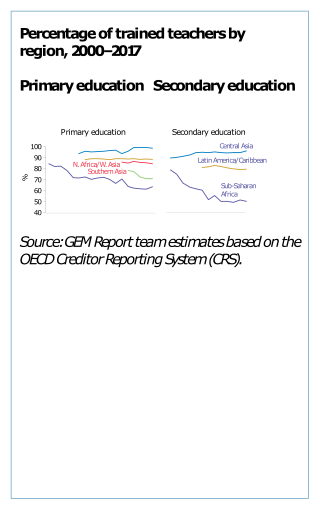
Teacher education or teacher training refers to programs, policies, procedures, and provision designed to equip (prospective) teachers with the knowledge, attitudes, behaviors, approaches, methodologies and skills they require to perform their tasks effectively in the classroom, school, and wider community. The professionals who engage in training the prospective teachers are called teacher educators.

Composition studies is the professional field of writing, research, and instruction, focusing especially on writing at the college level in the United States.
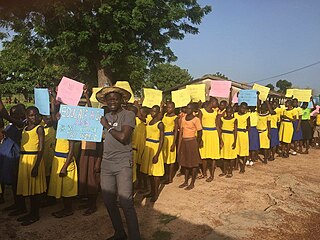
Inclusion in education refers to all students being able to access and gain equal opportunities to education and learning. It arose in the context of special education with an individualized education program or 504 plan, and is built on the notion that it is more effective for students with special needs to have the said mixed experience for them to be more successful in social interactions leading to further success in life. The philosophy behind the implementation of the inclusion model does not prioritize, but still provides for the utilization of special classrooms and special schools for the education of students with disabilities. Inclusive education models are brought into force by educational administrators with the intention of moving away from seclusion models of special education to the fullest extent practical, the idea being that it is to the social benefit of general education students and special education students alike, with the more able students serving as peer models and those less able serving as motivation for general education students to learn empathy.
The International Literacy Association (ILA), formerly the International Reading Association (IRA), is an international global advocacy and member professional organization that was created in 1956 to improve reading instruction, facilitate dialogue about research on reading, and encourage the habit of reading across the globe.

George Hillocks Jr. was an emeritus professor in the Department of Education, with a joint appointment in the Department of English Language and Literature at the University of Chicago. He received in 2011 the James R. Squire Award of the National Council of Teachers of English for having "a transforming influence and [making] a lasting intellectual contribution to the profession." He also received many other major awards. His teaching career included the preparation of English teachers in the Master of Arts in Teaching program, and the mentoring of Ph.D. students in the doctoral program, at the University of Chicago. After retiring from the University he continued to present seminars and workshops for writing teachers across the US. His primary research interests centered on the teaching of writing, literature, and language in middle and high school English classes, and on large-scale writing assessment. When not teaching and writing, he was an accomplished bagpipe player, performing frequently for Chicago audiences and in international competitions.
Keith Gilyard is a writer and American professor of English and African American Studies. He has passionately embraced African American expressive culture over the course of his career as a poet, scholar, and educator. Beyond his own literary output, he has pursued – and in some instances merged - two main lines of humanistic inquiry: literary studies, with its concern for beauty and significant form, and rhetorical studies, with its emphasis on the effect of trope and argument in culture. Moreover, his interests branch out into popular culture, civic discourse, and educational praxis. A critical perspective concerning these areas is, in his view, integral to the development of discerning and productive publics both on and beyond campuses and therefore crucial to the optimal practice of democracy.
Multicultural education is a set of educational strategies developed to provide students with knowledge about the histories, cultures, and contributions of diverse groups. It draws on insights from multiple fields, including ethnic studies and women studies, and reinterprets content from related academic disciplines. It is a way of teaching that promotes the principles of inclusion, diversity, democracy, skill acquisition, inquiry, critical thought, multiple perspectives, and self-reflection. One study found these strategies to be effective in promoting educational achievements among immigrant students.
Anne Haas Dyson is a professor at the University of Illinois. Her fields are the study of literacy, pedagogy, and contemporary, diverse childhoods. Using qualitative and sociolinguistic research procedures, Dyson examines the use of written language from children's perspectives within their social worlds, and as they engage with popular culture. Books she has published include The Brothers and Sisters Learn to Write, Popular Literacies in Childhood and School Cultures (2003), Writing Superheroes, Contemporary Childhood, Popular Culture, and Classroom Literacy (1997), Social Worlds of Children Learning to Write in an Urban Primary School (1993), Multiple Worlds of Child Writers: Friends Learning to Write (1989). Dyson has also written articles for professional journals.
Jimmie Wayne Corder was a scholar of rhetoric.
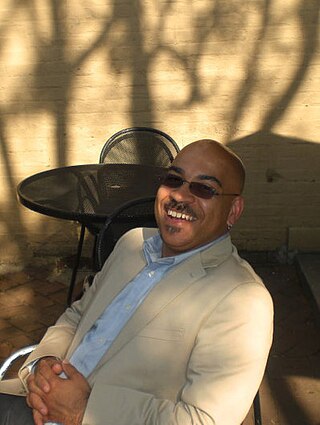
Dale Allender is a Black American educator. He is an Associate Professor of language and literacy in the Department of Teaching Credentials at California State University-Sacramento where he teaches courses in Academic Literacy, Ethnic Studies and Racial Social Justice Education. Allender is known for his work on Expanding the Canon, a television series on teaching multicultural literature produced in collaboration with Thirteen/WNET and AnnenbergCPB.

James Nimmo Britton was a British educator at the UCL Institute of Education whose theory of language and learning helped guide research in school writing, while shaping the progressive teaching of language, writing, and literature in both England and the United States after the Dartmouth Conference (1966) of Anglo-American English educators.
TESOL Quarterly is a quarterly peer-reviewed academic journal published by Wiley-Blackwell on behalf of TESOL International Association. It covers English language teaching and learning, standard English as a second dialect, including articles on the psychology and sociology of language learning and teaching, professional preparation, curriculum development, and testing and evaluation. The editors-in-chief are Charlene Polio and Peter De Costa, both at Michigan State University. TESOL also publishes TESOL Journal.
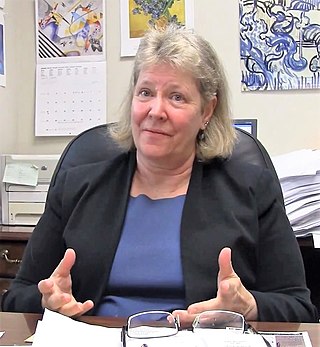
Kathleen Blake Yancey is the Kellogg W. Hunt Professor of English at Florida State University in the rhetoric and composition program. Her research interests include composition studies, writing knowledge, creative non-fiction, and writing assessment.
Inclusive Classroom is a term used within American pedagogy to describe a classroom in which all students, irrespective of their abilities or skills, are welcomed holistically. It is built on the notion that being in a non-segregated classroom will better prepare special-needs students for later life. In the United States, the Rehabilitation Act of 1973 guaranteed civil rights to disabled people, though inclusion of disabled students progressed slowly until the No Child Left Behind Act of 2001, after which almost half of US students with disabilities were soon in general classrooms.
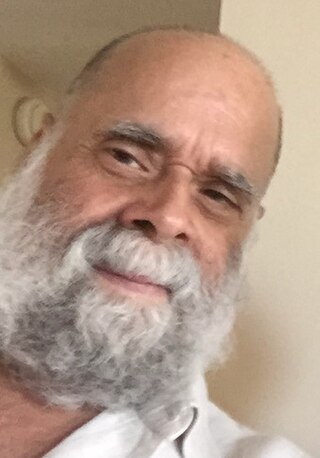
Victor Villanueva is an American academic and scholar in rhetoric and composition studies, serving the role of Regents Professor Emeritus at Washington State University. Villanueva was awarded NCTE's David Russell Award for Distinguished Research in the Teaching of English for his groundbreaking book Bootstraps, From an American Academic of Color. In 2009, Villanueva was the recipient of the Conference on College Composition and Communication Exemplar's Award. Villanueva has written and edited a number of significant works on the topic of race, rhetoric, basic writing, and the social and political contexts of literacy education.

The Dartmouth Literacy conference started on August 20, 1966, and lasted a little over three weeks until September 16, 1966. The meetings original name was "Anglo-American Conference on the Teaching and Learning of English", but with the conference occurring at Dartmouth college it became widely known as "The Dartmouth Seminar". The Seminar was the foundation of change for the teaching of English and literature in the United States and the United Kingdom.
Janet Emig was an American composition scholar. She is known for her groundbreaking 1971 study The Composing Process of Twelfth Graders, which contributed to the development of the process theory of composition. Her article, "Writing as a Mode of Learning" (1977) is also frequently cited and anthologized by the Writing Across the Curriculum movement.
Anne Ruggles Gere is an American scholar in the field of language education and literacy. She has published on topics such as the history of writing groups, best practices in literacy education, and integration of culturally responsive pedagogy.








